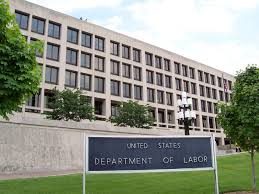
DOL and DHS Release Rules Increasing Wages and Adding Restrictions to H-1B Visa Program
On October 8, 2020, the U.S. Department of Labor issued an Interim Final Rule (IFR) amending regulations and increasing the prevailing wages for high-skilled workers with H-1B, H-1B1 or E-3 nonimmigrant visas. This rule is effective immediately. The H-1B nonimmigrant visa allows U.S. employers to temporarily employ foreign workers in specialty occupations; the H-1B1 and E-3 nonimmigrant visa classifications are similar but apply to specific countries. DOL is amending its regulations to incorporate changes to the computation of wage levels under the Department’s four-tiered wage structure to “better reflect the actual wages earned by U.S. workers similarly employed to foreign workers.” DOL is adjusting the wage levels for these workers (Level 1-Level 4) from 17th, 34th, 50th and 67th percentiles to the 45th, 62nd, 78th and 95th percentiles. DOL expects that this IFR will have a significant economic impact on a substantial number of small businesses. According to DOL, 77.1 percent of petitioners in these categories are small businesses. DOL estimates that it will take a small employer 1 hour to read this rule and estimates average wage impacts of $14,664 – $216,187 a year per small entity. DOL seeks feedback on the impact of this rule on small businesses and any regulatory alternatives that would minimize these costs. Comments on this rule are due on November 9, 2020.
- Read the rule and submit comments to DOL:
https://www.federalregister.gov/documents/2020/10/08/2020-22132/strengthening-wage-protections-for-the-temporary-and-permanent-employment-of-certain-aliens-in-the - Advocacy contact: Janis Reyes
The Department of Homeland Security (DHS) is amending certain DHS regulations governing the H-1B nonimmigrant visa program to strengthen the integrity of the program during the COVID-19 crisis and to ensure that the employment of the H-1B workers will not have an adverse impact on the wage and conditions of similarly employed U.S. workers. The rule would narrow the definition of “specialty occupation,” requiring the applicant have a degree in the area they want to work in. The rule also limits business arrangements where the H-1B holder works for a third party, by limiting these visas to a one-year duration. The agency further defines related terms such as “worksite,” “third-party worksite,” “United States employer,” and clarifies how the agency will determine an “employer-employee relationship” between petitioner and beneficiary. The interim final rule is effective on December 7, 2020, and comments are due to DHS on December 7, 2020. Comments on a related information collection under the Paperwork Reduction Act are due on November 9, 2020.
- Read the rule and submit comments to DHS:
https://www.federalregister.gov/documents/2020/10/08/2020-22347/strengthening-the-h-1b-nonimmigrant-visa-classification-program - Advocacy contact: Janis Reyes
